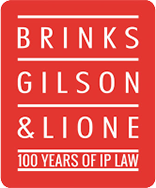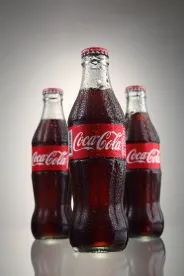Should one company have exclusive rights to use the term “Zero” in connection with no-calorie soft drinks? The U.S. Court of Appeals for the Federal Circuit (“Federal Circuit”) has remanded that question back to the Trademark Trial and Appeal Board (“TTAB”), finding that the TTAB erred in its first attempt to resolve that issue.
Royal Crown Company, Inc. and Dr Pepper/Seven Up, Inc. (“Royal Crown”) and The Coca-Cola Co. (“Coca-Cola”) have been involved in a dispute for over a decade concerning Coca-Cola’s attempt to register the term ZERO as part of a brand. Both Royal Crown and Coca-Cola compete in the beverage market, and both companies use the term ZERO in connection with various beverage products. For example, Royal Crown uses ZERO in connection with trademarks such as DIET RITE PURE ZERO, while Coca-Cola uses ZERO in connection with trademarks such as COCA-COLA ZERO and SPRITE ZERO. In practice, both Royal Crown’s and Coca-Cola’s marks are used with minimal or no-calorie drinks. Both Royal Crown and Coca-Cola filed U.S. federal trademark applications for their respective ZERO brand marks for beverage products. Royal Crown disclaimed the term ZERO in its applications. (The entry of a disclaimer does not remove matter from a mark, but is just a statement that the trademark owner does not claim exclusive rights to the matter.) Coca-Cola did not disclaim ZERO from its applications; rather, it submitted claims of acquired distinctiveness with respect to the term, which were accepted by the U.S. Patent & Trademark Office.
Royal Crown filed oppositions against nineteen of Coca-Cola’s ZERO-formative applications beginning in 2007, arguing that the term ZERO is merely descriptive or generic when used in connection with Coca-Cola’s goods. In essence, Royal Crown was requesting that Coca-Cola be required to disclaim the term apart from Coca-Cola’s marks as a whole. The oppositions were consolidated, and the TTAB sustained Royal Crown’s opposition in part and dismissed it in part. In relevant part, the TTAB found that Royal Crown did not establish that ordinary consumers primarily use or understand the term ZERO to refer to the genus of soft drinks, sports drinks, or energy drinks and, therefore, the term was not generic. Royal Crown Co., Inc. and Dr Pepper/Seven Up, Inc. v. The Coca-Cola Company, 2016 TTAB LEXIS 234, at *37-39 (TTAB May 23, 2016). The TTAB further found that Coca-Cola established that the descriptive term ZERO had acquired distinctiveness when used as part of a mark for soft drinks, and for syrups, concentrates, and powders for making soft drinks. The TTAB dismissed Royal Crown’s oppositions to Coca-Cola’s applications on these bases. Id. at 48, 50.
On appeal, the Federal Circuit vacated the TTAB’s dismissal, concluding that the TTAB erred in framing the test for genericness and failed to determine whether Coca-Cola’s ZERO marks were highly descriptive. Royal Crown Co. v. Coca-Cola Co., 892 F.3d 1358, 1366 (Fed. Cir. 2018). Specifically, the Federal Circuit found that the TTAB asked the wrong question in assessing the alleged genericness of the term ZERO, in that it failed to consider that “a term can be generic for a genus of goods or services if the relevant public . . . understands the term to refer to a key aspect of that genus.” Id. at 1367 (quoting In re Cordua Rests., Inc., 823 F.3d 594, 603 (Fed. Cir. 2016)) (emphasis in original). The Federal Circuit went on to explain that “if the public understands ZERO when used in combination with a designated beverage name to refer to a sub-group or type of beverage that carries specific characteristics, that would be enough to render the term generic.” Id. at 1368. The Federal Circuit also noted that the TTAB did not take into account whether the relevant consuming public would consider the term ZERO to be generic for a subcategory of soft drinks, sports drinks, or energy drinks. Id. In its remand, the Federal Circuit instructed that that the TTAB examine “whether ZERO is generic because it refers to a key aspect of at least a sub-group or type” of the class of beverages. Id.
In commenting upon the Federal Circuit’s opinion, Professor Thomas J. McCarthy noted that the court may have mischaracterized the test for genericness as defined by the Lanham Act. See, John L. Welch, Professor McCarthy Critiques the CAFC’s ZERO Decision, THE TTABLOG (June 27, 2018) (http://thettablog.blogspot.com/2018/06/professor-mccarthy-critiques-cafcs-zero.html). For example, the Lanham Act states that the test for determining if a registered mark has become generic is whether “[t]he primary significance of the registered to mark to the relevant public . . . has become the generic name of the goods or services on or in connection with which it has been used.” 15 U.S.C. § 1064(3). Notably, the Lanham Act test does not consider whether the trademark “refers to a key aspect” of the goods or services, it simply examines whether the mark’s primary significance is the generic name of the goods or services. By broadening the test for genericness, the Federal Circuit appears to blur the line between generic and descriptive marks. A mark is considered to be merely descriptive if it describes an ingredient, quality, characteristic, function, feature, purpose, or use of the goods or services with which it is used. See, e.g., TMEP 1209.01(b) (Oct. 2017). The Federal Circuit’s genericness test for the term ZERO, namely, whether the term “refers to a key aspect” of the goods comes very close to the “describes a quality/feature/etc.” test for descriptive marks. As a result, this decision may make it more difficult for trademark owners and courts to distinguish between descriptive and generic terms.
The distinction between descriptive and generic terms is of paramount importance in trademark law. It is possible for a mark owner to obtain trademark rights in a descriptive mark upon a showing of acquired distinctiveness, while generic terms are incapable of acquiring distinctiveness. By potentially expanding the category of generic terms, the Federal Circuit may be inadvertently endangering trademark rights in descriptive marks that have acquired distinctiveness.
The Federal Circuit also found that the TTAB erred in its analysis of the descriptiveness of the term ZERO. While the TTAB did describe the general proposition that higher levels of descriptiveness require a more substantial showing of acquired distinctiveness, the Federal Circuit chided the TTAB for its failure to make a formal finding as to the degree to which the term ZERO is descriptive and its failure to assess Coca-Cola’s evidence through an “exacting lens.” Royal Crown Co., 892 F.3d at 1369. The Federal Circuit vacated the TTAB’s finding on acquired distinctiveness, explaining that the TTAB must make “an express finding regarding the degree of the mark's descriptiveness on the scale ranging from generic to merely descriptive, and it must explain how its assessment of the evidentiary record reflects that finding.” Id. Trademark practitioners should take note of the Federal Circuit’s “exacting lens” evidentiary standard when seeking to establish that a highly descriptive term has acquired distinctiveness.





 />i
/>i

